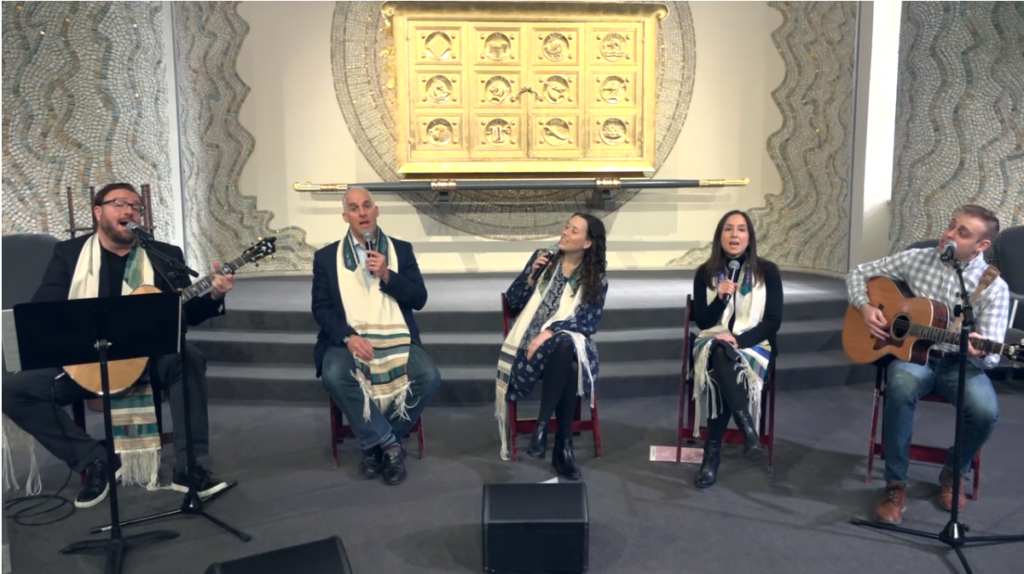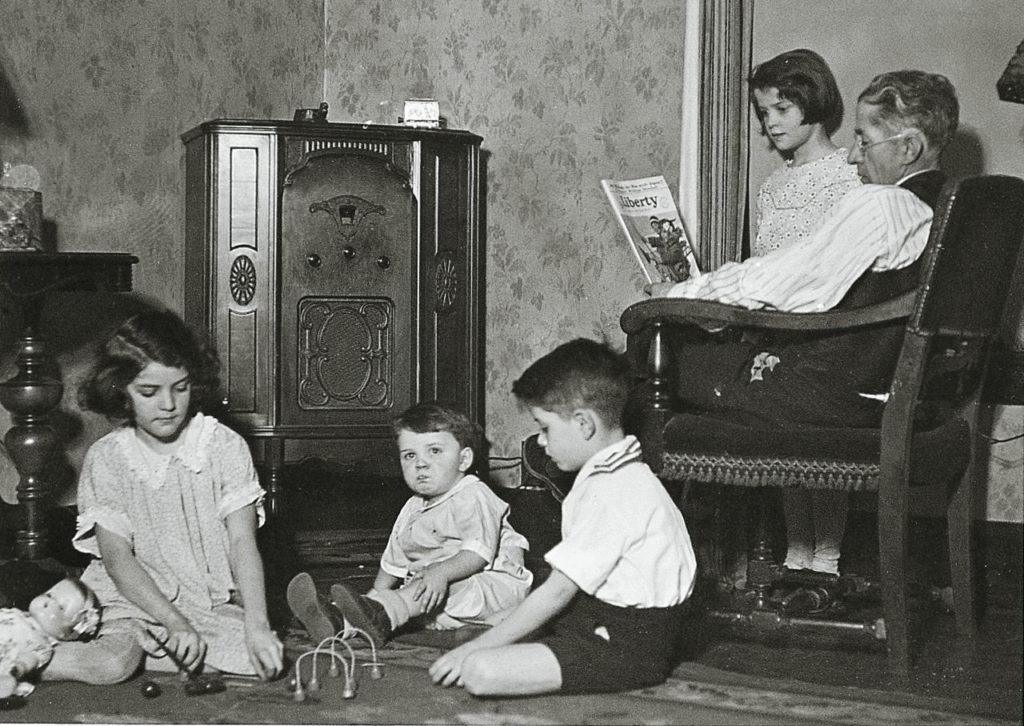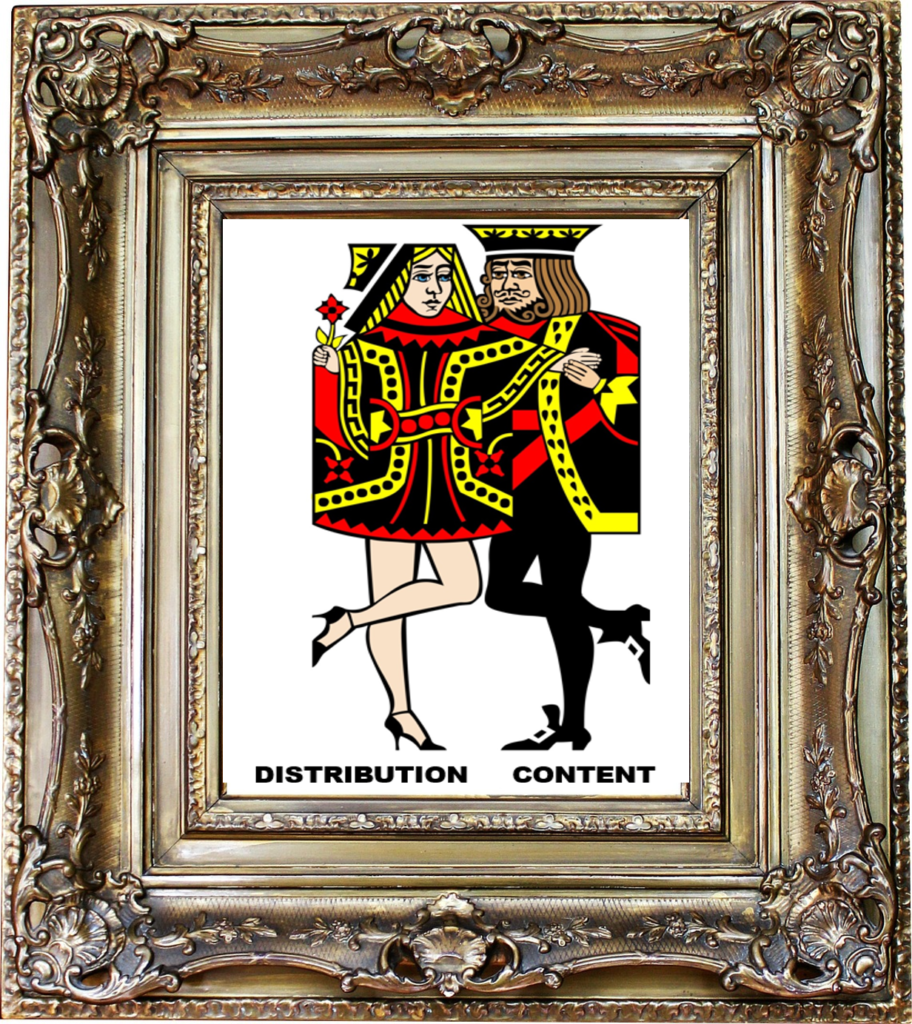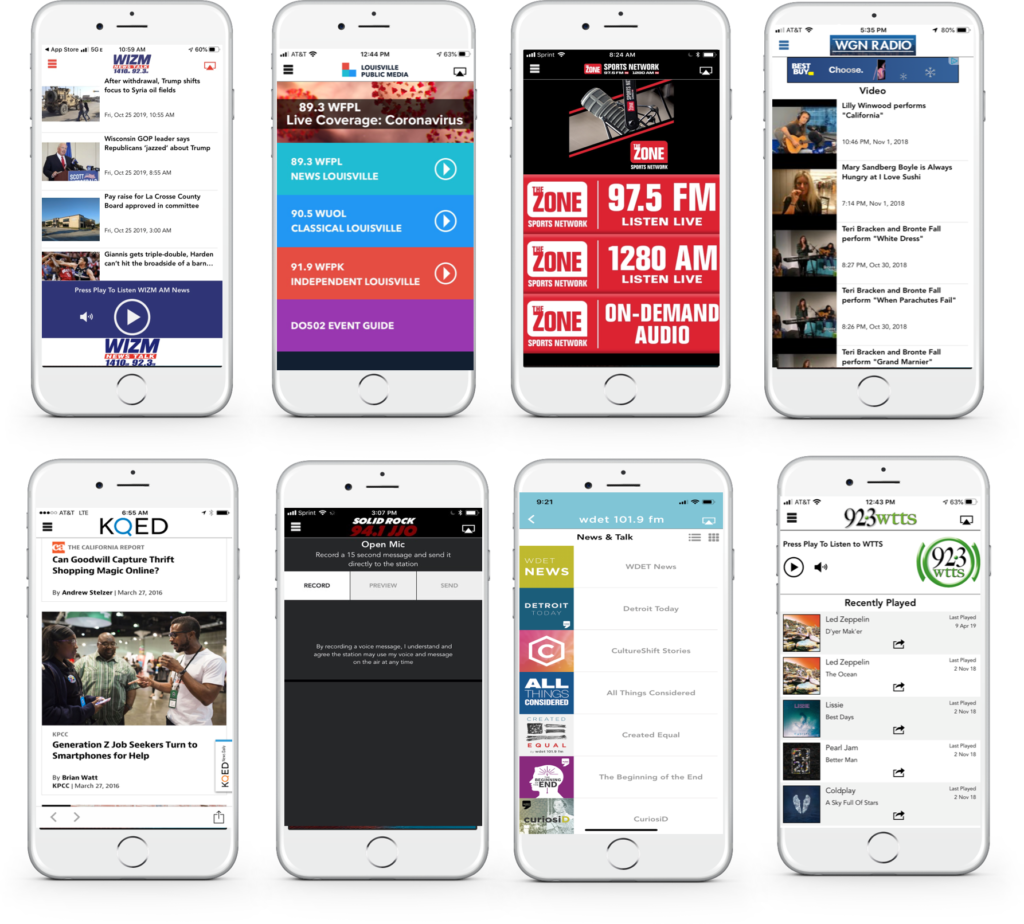
I’m writing this post from Delray Beach, Florida, my second home during the winter months. As I drove around a rapidly changing community, I noticed several empty church parking lots on Sunday morning, a time when these religious institutions are teeming with people.
Under these very extenuating circumstances, it makes all the sense in the world, as more and more businesses and institutions would rather err on the side of caution, rather than putting customers/parishioners in harm’s way.
But despite the risks of COVID-19, a number of religious institutions soldiered on, conducting services in empty churches, mosques, and synagogues. Of course, the real prescient houses of worship have been prepared for any and all eventualities for some time now. They’re the ones that have invested in digital strategies to ensure their missions would not be interrupted due to any form of national emergency – or act of God.
The visual you see at the top of this post is Friday’s night streaming service from Temple Israel in West Bloomfield, Michigan. They’ve suspended all live services through mid-April, but the show must go on. Whether I’m at home in suburban Detroit or more than 1,000 miles away in Florida – or anywhere in the world for that matter – I can “attend” these services virtually.
And perhaps that’s more important now than ever, as even the non-believers among us might want to avail themselves of support, companionship, a shoulder to cry on, and prayer during this time of “uncharted territory.” If there was ever a time when religious institutions were reminding us of their value, it’s right now.
But only the ones that invested in digital services will be able to provide these comforts during this time as more and more are forced to close their doors. The virtual portal stays open all the time. And thanks to on-demand, if you missed a service, you can go back and watch it at your convenience – wherever, whenever, or however you like.
Temple Israel has been streaming its services for years, especially the High Holidays in the fall. Funerals, graduations, consecrations, and other momentous events are streamed as well. They were ready for this, as were many of their congregants who have watched these digitally presented services in the past.
As Rabbi Josh Bennett (second from left above) opened the service, he offered his virtual congregation these words:
“We welcome all of you to Temple Israel. Your clergy are here with you to celebrate Shabbat. No matter where you are, we are together tonight.”
Radio and religion? Strange bedfellows. And yet, many of the reasons why people listen to radio or attend services are similar – for companionship, mood elevation, escape, and to hear stories that inspire or even make us laugh. (Christian radio broadcasters, in particular, know exactly what I’m talking about.)
This isn’t augmented or virtual reality – it”s the real thing, all right. And a brand or institution’s ability to reach its flock at this pivotal time in our history is everything.
As the coronavirus bears down on every community in America – no matter your religious preference (or lack thereof) – some religious institutions are perfectly postured to serve their respective flocks – because they embraced a digital strategy.
Let’s segue over to radio.
And isn’t it interesting how many of the same basics apply? Often taken for granted, the need for real-time, in the moment, local radio is at its high – RIGHT NOW. Satellite radio, a Spotify playlist, or even that Marc Maron podcast isn’t going to connect anyone to what’s going on in a swirling, confusing, emergency environment.
This is where local radio can shine – even though many clusters and individual radio stations are coping with depleted staffs and resources. The ability to provide information, comfort, and company is something only hometown broadcast radio can do.
Of course, that assumes your station has invested in digital tools, offers a competitive-sounding stream, and has a mobile app that’s reliable, functional, and simple.
Here’s why this matters…
Techsurvey 2020 will be released in a matter of days, first to our 500+ stakeholder stations, and soon to all of you through a free webinar we’re offering in partnership with AllAceess. It’s the presentation I intended to make later this month at the WorldWide Radio Summit until the coronavirus made that impossible.
So, I’m looking at what I’m seeing in TS20, a study of 46,000+ respondents, almost all of whom are core radio fans. These aren’t the people who have given up on the medium – they are the ones who listen to radio day in and day out, they’re loyal to our personalities, and they even show up at our events.
 And only eight in ten of them (81%) have a working radio at home. Let that one sink in.
And only eight in ten of them (81%) have a working radio at home. Let that one sink in.
Drill it down, and we see that among Millennials, it’s more like only two-thirds (68%). Among format listeners, for example, we know that only 72% of CHR fans have a working radio at home they actually use.
And these are broadcast radio’s P1s. Imagine what it’s like for the rest of the population.
We also know that in the coming days, weeks, and perhaps months, consumers will be spending considerably less time in their workplaces. And as a result, they will be spending much less time in their cars as they hunker down in their homes.
Radio’s #1 listening environment – driving in the car with the radio on – is going to take a hit. Many of you can see it in on your city streets today. A look at what’s going on in Europe is a preview of where we may be headed.
So, how radio listeners can easily access your station from their kitchens, bedrooms, and man caves becomes a very good question. And one that every radio station  must address. Yes, it’s about content, of course. That’s the foundation of every brand. But it’s also very much about distribution – how, when, and where the audience is able to enjoy and consume your programming.
must address. Yes, it’s about content, of course. That’s the foundation of every brand. But it’s also very much about distribution – how, when, and where the audience is able to enjoy and consume your programming.
Building and fortifying radio’s digital distribution capabilities have been very much a company by company, station by station situation. Some of you don’t have an app or you have one that is barely serviceable. Or maybe you haven’t really considered a smart speaker strategy, choosing instead to wait and see if they catch on. And when was the last time you test drove your stream?
For those of you with robust, high-functioning mobile apps that you’ve aggressively promoted, give yourself a pat on the back. And while you’re at it, thank your CEO for being smart enough to prepare for the future.
If you haven’t opened up your app lately and given it a “test drive,” this may be a good day to do so. Whatever developer you bought it from ought to be able to make the necessary modifications to get it running smoothly again. If you’ve hesitated to promote your app because “you can’t make any money from streaming,” you might want to rethink that strategy right about now. For a growing number of listeners, your stream – and specifically, your app – may be the only way they can hear you.
But if you’re not in a good space from a digital and mobile standpoint, there is still time to address your content/distribution gap. Our same Techsurvey now tells us that more than nine in ten people (92%) have a smartphone – a percentage that has increased every year we’ve asked. Among Millennials, for example, it’s 98%. If you want your content to be heard in 2020, you’d better have the best mobile interface you can afford.
So, excuse what sounds like a sales pitch, but if your audience-facing mobile plan is insufficient or non-existent, there’s still time to do something about it.
Our mobile apps development company, jacapps, has become the biggest in radio, having developed 1,300+ apps on both the iOS and Android platforms. Our V4 app is designed to bring your station’s content to your listeners, wherever they may roam, hang out, and hunker down.
Yes, streaming is its primary function, but it also provides push notifications, podcast and video access, and other features – all totally customizable.
The app screenshots below represent all kinds of stations and functionality. And they’re all the exact same platform:

The good news is that if we have the right elements from you, we can turn these around very quickly.
And because of the coronavirus emergency, I have instructed Bob Kernen at jacapps to produce these apps as affordably as possible. I think you’ll find the price reasonable, especially if your mobile execution is lacking.
I don’t use this blog platform as a sales tool for either one of our companies as a matter of policy. But I hate to see any station miss the moment and fail to serve its local audience during a time of national emergency.
And to underline this point, I don’t give a rat’s exterior whether you buy an app from jacapps, SoCast, AirKast, or any other supplier.
As long you recognize that for the welfare of your audience, your advertisers, and your community, providing an easy, clean, and free interface with your station is not just a good idea at this point.
It’s as paramount as your transmitter and your tower.
Contact Bob Kernen or Sari Zalesin from jacapps for quotes or for contact info for these other apps companies.
To register for our Techsurvey 2020 free webinar, in partnership with AllAccess, click here.
You can watch Temple Israel’s virtual service here.
- In Radio, You Just Never Know - April 17, 2025
- The Secret To Making A Great Podcast (And Great Radio) - April 16, 2025
- I Read The (Local) News Today, Oh Boy! - April 15, 2025




Great stuff as usual Fred. As a contrarian, is Paul running it hard and taking chances?
Nope, we’re both off the road. My Starbucks here in Delray Beach has removed chairs and tables, inside and out. But legend has it Paul still is hanging out at Dunkin’ Donuts. That’s the devil-may-care kind of guy he is. Hope everything is well with you, Charlie, your families, and the Mercury team.
The world will soon learn that neither rain, nor snow, nor the Coronavirus can keep people away from a good cup of coffee and a donut!
Showing my age, of course, but it just astonishes me that so many people no longer have home radios. (I seem to have at least one in every room, and my biggest challenge is tuning them all to the same station so that my wife doesn’t go crazy at me.) Obviously, stations must adapt and you’re right on point re apps, even if dinosaurs like me still default to a distant signal full of static rather than boot up the crystal-clear audio of an app. (That perplexes her, too.) Bring in the national info, sure, but live & local remain the holy grail.
“Live & local” is now more important than ever, John. But as you acknowledge, radio people need to ensure their content is available on any device or platform. This is radio’s time to re-prove it’s value. Thanks for weighing in.
Equally important, Fred, is offering your stations on Alexa devices.
We have 3 in our house now, and will probably get more!
It’s so simple to just say “Alexa, play WROR” AND BOOM…ITS ON.
More folks working at home =more Alexa opportunities.
Stay safe & thanks for today’s thought-starter
We’ve covered that, too, JC and you’re right. Stations should be doing both mobile and smart speakers (as the former has about a 3:1 lead over the latter). Thanks so much for chiming in.
Thank you. Some will get this and other others won’t but when you have everything in your pocket it just makes a lot of sense.
Second that. Hope all is well with the AirKast team. Stay safe.
Was touched to experience the Ypsilanti First United Methodist Church pastor teaming up with pastors of three other congregations to provide a stream worship service this past Sunday. I was able to sing along which put me in a much better mood to head to the WRCJ studios for my “Swing Set” show. Along with houses of worship, radio has a leadership opportunity here. We must step up and be live, local, loving and totally for real. No BS – just worthy broadcasting.
Spot on, Linda. Thanks for sharing the story.
Great stuff, but need to add, (unabashed plug) The Coast is upgrading our app and honestly can’t imagine anyone being more knowledgeable and understanding than your crew. Special mention to Sari and Anthony and thanks to Paul for putting us on that path
Truly kind of you, Tom. The jacapps staff has done an amazing job, and it’s always nice to hear these stories. I will pass along those kudos.